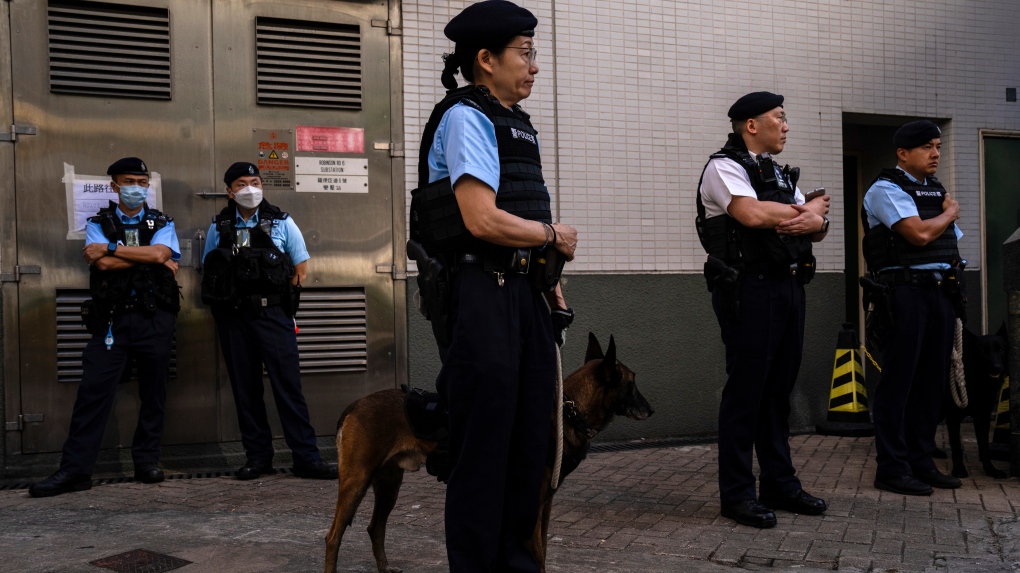HONG KONG -
Voter turnout plunged below 30 per cent in Hong Kong's first district council elections since new rules introduced under Beijing's guidance effectively shut out all pro-democracy candidates, setting a record low since the former British colony returned to Chinese rule in 1997.
According to official data on Monday, 27.5 per cent of the city's 4.3 million registered voters cast ballots in Sunday's polls -- significantly less than the record 71.2 per cent who participated in the last elections held at the height of anti-government protests in 2019. The pro-democracy camp won those polls in a landslide victory, in a clear rebuke of the government's handling of the protests.
Beijing loyalists are expected to take control of the district councils after Sunday's elections, with partial returns showing big pro-government parties gaining more seats than independent candidates and smaller parties.
The district councils, which primarily handle municipal matters such as organizing construction projects and public facilities, were Hong Kong's last major political bodies mostly chosen by the public.
But under new electoral rules introduced under a Beijing order that only "patriots" should administer the city, candidates must secure endorsements from at least nine members of government-appointed committees that are mostly packed with Beijing loyalists, making it virtually impossible for any pro-democracy candidates to run.
An amendment passed in July also slashed the proportion of directly elected seats from about 90 per cent to about 20 per cent.
Many prominent pro-democracy activists have also been arrested or have fled the territory after Beijing imposed a harsh national security law in response to the 2019 protests.
Critics say the low voter turnout reflects the public sentiment toward the "patriots" only system and the government's crackdown on dissent.
The previous record low for participation in the council elections since the handover to Chinese rule was 35.8 per cent in 1999.
The electoral changes further narrowed political freedoms in the city, following a separate overhaul for the legislature in 2021. Following those changes, turnout in the last legislative election two years ago plunged to 30 per cent from 58 per cent in 2016.
Hong Kong leader John Lee on Sunday said the council elections were the "last piece of the puzzle" in implementing the principle of "patriots" administering the city.
Government officials have downplayed the turnout as a measure of the overhaul's success, but stepped up efforts to promote the polls. Lee's administration held carnivals, an outdoor concert and offered free admission to some museums to encourage voting.
Sunday's elections were extended by 1 1/2 hours because of the failure of the electronic voter registration system. Multiple politicians said the glitch would affect their chances of winning because some residents gave up voting before authorities implemented a contingency plan.
David Lok, chairman of the Electoral Affairs Commission, refused to comment on the turnout and said it was unclear whether some voters were unable to cast ballots due to the system failure.
"I can't rule out this possibility," he said. "If they can't vote due to our errors, I feel remorseful."











































